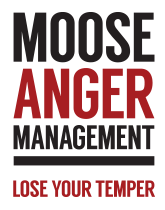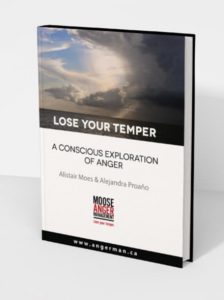Facing Road Rage: A Success Story
Henry, who was sitting across from me in my office, told me that he had a relapse. Henry had a history of reacting aggressively when driving. As well, he almost lost his job the previous fall due to his reactiveness at work. He had recently made a serious commitment to change. Regardless, he was following someone in traffic, and could sense that they were about to turn left, but since the turn signal was not on, patiently waited, only to see the car stop in the middle of the intersection, making it necessary for him to wait further, and then drive around. He said out loud as he passed and looked over at the female driver: “Stupid fucking bitch!” and then, due to the work he had done on this issue, stepped back, so to speak, and realized that his reaction was disconnected from his heart and his intelligence, and he could see that in the big picture her actions were irrelevant to his life. He recognized that she was not really a threat to him. With this in mind he started to let it go, and felt some shame over what he had just said. When I asked him about what he felt when it first happened, he said: “It was like she was disrespecting me, disregarding me”. I asked him what emotion was behind that. He responded: “It is like she doesn’t care about anyone else – It actually feels like hurt”. I asked him when he first recalled feeling hurt, ignored, disregarded, or like he didn’t matter. “My parents treated me like that all the time”. I asked him what that was like: “Whenever I made a mistake, they treated me just like I treated that other driver; just like I treat a lot of drivers”. He stopped and thought about that for a bit. I then asked him to look at the emotional maturity of that part of him, the part that reacts like that, and assess how old that part might be in years of age: “Five”. I let him know that it takes some courage to be so honest about this, and that five years old is what a lot of people feel is behind their reactiveness, sometimes even younger.
The difference between previous acts of road rage, and this event, was that rather than him walk into work afterwards, filled with contempt, adrenaline, and judgment, he let it go, through feeling some shame, compassion and understanding. Often cycling thoughts of this event would have stayed with him for the whole day. This time, he reframed what occurred, and could breathe and let go of it. The adult got back in charge of him.
Back to our session. We did an exercise called Gestalt to explore the relationship between his adult self, and this five year old in him. I asked if he would consider having a conversation with the part of him that is five; that part that feels neglected and hurt. He agreed. Henry described what that five year old was like, including body language, the look on his face, and the sadness in his eyes. He could connect to what this boy felt like, and what he feels like now, when people make mistakes around him, recognizing that, each time, the five year old feels disrespected. He is a manager at his work. People make mistakes regularly. That five-year-old felt hurt, powerless, alone, unsupported, and unloved. His learned response to this was to act out with aggression as his parents had done, and how, as he noted, his parents’ parents’ had likely done. We were not there to blame his parents, although they are accountable for their actions. We are here to understand what occurs when he leaves the five year old running his life. Through the gestalt I asked the five year old in him what he really needed in those moments where he felt neglected and uncared for. His response was that this young part of him needed: “To be listened to, to be loved, to be treated with compassion, and a hug”. We spoke about how he could parent this part of himself. That was his job, because no one else would. Henry was now more aware of what was behind his reactions, his road rage. He also recognized that he could treat others with compassion and be loving with that younger neglected part of him. This left him understanding himself from a different perspective that allowed him to connect with his heart, and his emotional and intellectual intelligence. He left that day recognizing he had a lot of work to do on all this, and that he was getting somewhere both interesting and empowering.





